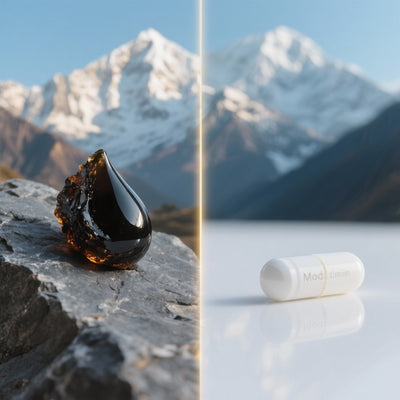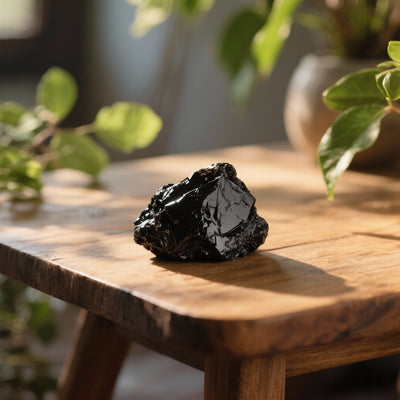Myth or reality? We debunk 5 common misconceptions about decreased libido
Desire fades, the flame flickers... A decreased libido affects far more people than you might think, yet it remains shrouded in silence, shame, and, above all, numerous misconceptions. These persistent myths can not only create unnecessary anxiety but also prevent finding real and appropriate solutions. Do you think it's inevitable, a sign of lost love, or a purely female issue? It's time to sort things out.
In this article, we'll delve into these beliefs to separate myth from reality. By deconstructing these five most common misconceptions, you'll discover that libido is far more complex and nuanced than it seems. Prepare to shift your perspective and rediscover a healthier, guilt-free approach to your desire.
Myth #1: Decreased libido only affects women or older people
This is undoubtedly one of the most persistent stereotypes. The image of the man with an insatiable desire versus the less willing woman, or the idea that sexuality fades with age, is deeply ingrained in our culture. Yet, the reality is quite different and much more universal.
Sexual desire knows no gender or age. Studies show that men are just as likely to experience periods of low libido as women. Work stress, performance anxiety, chronic fatigue, financial worries... Psychological and environmental factors weigh heavily on everyone. In men, a drop in testosterone can play a role, but it is far from being the only cause.
"Desire is primarily cerebral. Approximately 80% of libido is in the mind. Attributing its fluctuation solely to hormonal factors or age ignores the immense impact of our psychological state, our personal history, and the quality of our relationship."
Similarly, while hormonal changes related to menopause or andropause can affect libido, many people report a more fulfilling and liberated sex life after 50 or 60. The key is to understand that libido fluctuates throughout life for everyone , in response to a multitude of internal and external factors.
Myth #2: If desire decreases, it's the end of love in the relationship
Panic sets in. Desire isn't as strong as it was in the early days, and the conclusion seems obvious: "He/She doesn't love me anymore" or "Our relationship is over." This simplistic equation between sexual desire and romantic feelings is a major source of anxiety and conflict.
The reality is that love and desire are two distinct things, although often linked. Desire, especially the passionate desire of the early stages of a relationship, is a complex, hormonal, and fleeting alchemy. Love, on the other hand, is built on deeper foundations: attachment, complicity, support, and shared goals. A decrease in libido in no way invalidates the depth of these feelings. On the contrary, it can become an opportunity to strengthen the bond .
Consider this period not as an end, but as a new phase. It's the perfect time to:
- Communicating: Expressing feelings without accusing the other person.
- Explore other forms of intimacy: Tenderness, massages, caresses, deep conversations.
- Reconnecting outside of bed: Sharing activities, laughing together, rediscovering each other.
A strong couple isn't one that never encounters difficulties, but one that knows how to overcome them together. Viewing a decreased libido as a symptom to be acknowledged rather than an irrevocable judgment can transform a crisis into an opportunity to grow the relationship.
Myth #3: Libido is binary, it's "all or nothing"
We often imagine desire as a switch: ON or OFF. Either we want it, or we don't. This binary view is not only wrong, but it puts enormous pressure on us. If the switch stays OFF for too long, we feel "broken" or abnormal.
It's more accurate to think of libido as a slider on a spectrum, or even like the weather: it varies, it fluctuates, it's influenced by a multitude of factors. Your desire isn't the same in the morning when you wake up, in the evening after an exhausting day, or during a relaxing vacation. It's normal and healthy for it not to be constant.
The different types of desire
Sexologist Emily Nagoski distinguishes between two types of desire, which helps to deconstruct the "all or nothing" myth:
- Spontaneous desire: This is the urge that seems to arise from nowhere. It's the model often depicted in films, but it only applies to a portion of the population.
- Reactive desire: It doesn't arise spontaneously, but in response to pleasurable stimulation. A kiss, a compliment, a caress... The context and the excitement create desire. Many people operate this way, and that's absolutely nothing to worry about!
Understanding that your desire can be more reactive than spontaneous changes everything. Instead of passively waiting for the urge to arise, you can actively create conditions conducive to its emergence.
Myth #4: There is a magic pill to restore desire
In our society of quick fixes, we often look for a miracle cure: a dietary supplement, a plant, a medication that will instantly reignite the flame. While some medical or natural aids can be helpful in specific cases (such as a proven hormonal imbalance), they are never the only solution.
A decreased libido is multifactorial. Treating it effectively requires a holistic approach that considers all aspects of your life. Thinking that a simple pill will solve a problem related to stress, poor communication in a relationship, or chronic fatigue is wishful thinking. It's like putting a band-aid on a broken bone.
To truly take action, you need to examine several pillars of your well-being:
- Stress and mental health: Cortisol, the stress hormone, is a powerful inhibitor of libido.
- Sleep: A chronic lack of sleep has a direct impact on your hormones and energy.
- Nutrition: A balanced diet supports your hormonal system. Explore our wellness recipes for ideas.
- Physical activity: It improves circulation, mood and self-image.
- Overall lifestyle: Work-life balance, personal time, passions... It's all connected. For more inspiration, check out our lifestyle blog .
Regaining your libido is a marathon, not a sprint. It requires taking care of yourself as a whole.
Myth #5: Talking about your libido is awkward and pointless
It's the ultimate taboo. You can talk about anything except that. Fear of judgment, of hurting the other person, or simply a lack of words means that many couples suffer in silence. Each remains isolated with their anxieties, interpretations, and frustrations.
However, the reality is that talking is the first, and most powerful, solution . Putting words to what you feel helps break the isolation and defuse the situation. It's the starting point for any resolution.
Opening the dialogue allows you to:
- Sharing vulnerabilities: Expressing fears and doubts creates a deep emotional connection.
- Put an end to the assumptions: Your partner will finally know what you are going through, instead of imagining the worst.
- Looking for solutions together: You become a team facing a common challenge, not two adversaries.
- Consider seeking outside help: If the conversation is too difficult, a couples therapist or sexologist can offer a neutral and safe space to help you.
Talking about one's libido is not an admission of failure, it is proof of maturity and commitment to one's relationship and one's own well-being.





